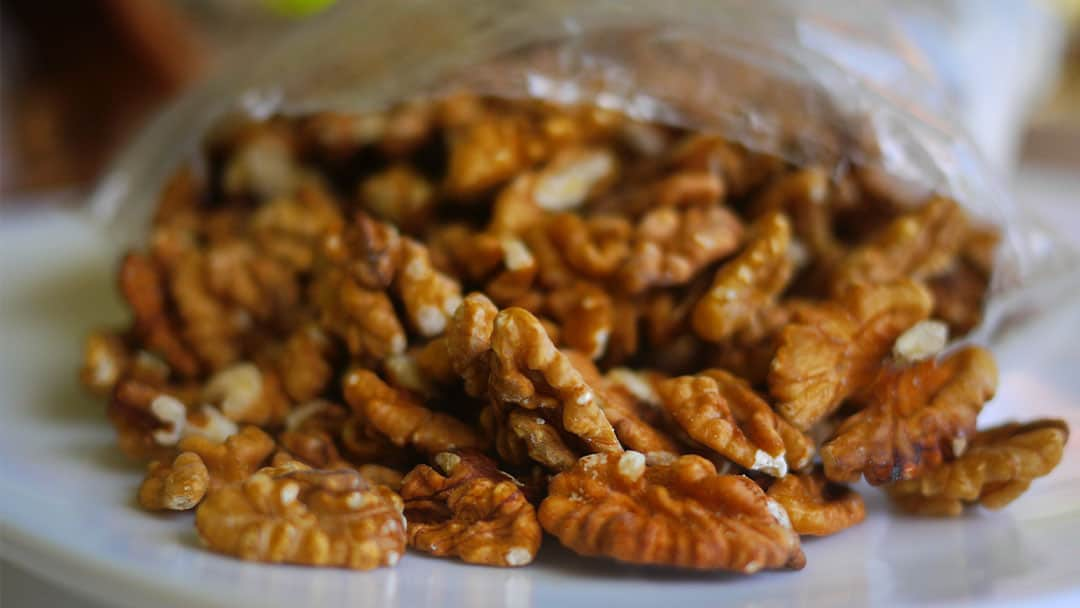Can Dogs Eat Pecans? Everything You Need to Know Before Feeding Them

Regardless of if your dog eats the nut part or the shell, eating pecans can lead to health problems ranging from mild to severe, especially if the pecans are moldy. Dog owners are usually careful about what their dogs eat, frequently asking if it’s safe for their dogs to have pecans.
Just so you know…..
Juglone, a compound found in pecans, is toxic to many dogs. Consult your veterinarian before introducing new foods to your dog’s diet to ensure it’s a healthy snack.
Can Dogs Eat Pecans? Is Pecan A Natural Poison For Dogs?
If you notice any unusual symptoms in your dog after it eats pecans and suspects it may be food poisoning, contact your vet immediately.
The most common severe signs of your dog eating a pecan are vomiting, lower cholesterol digestive issues, or other gastrointestinal distress.
These symptoms are considered toxic and if left untreated…
They might cause life-threatening Seizures, confusion, bladder stones, tremors, and abnormal movement that have occurred in a few dogs in rare cases.
Are Pecans Toxic for Dogs?
Hate to break it to you, but…
Pecans are not suitable and are toxic for dogs.
They are technically safe and tasty nuts with a sweeter flavor than many other nuts, according to many of us.
Fresh Pecans are delicious on their own, they are also popular in pies, cakes, ice cream, and other sweet treats. Because these nuts are high in protein and healthy fats, it’s natural to wonder, “Can dogs eat pecans?”
However, while the nutrients in pecans may be beneficial to some humans, this food is not appropriate for your pet.
Real Reasons Why Pecans Are Harmful to Dogs

For one thing, nuts are not a natural part of a dog’s diet.
Therefore….
Their digestive systems are not designed to absorb the nutrients found in nuts. While the nutritional content of pecans may exist, it will likely pass right through your pet.
In many cases, a high protein, low fat, and low carb diet will be beneficial to dogs.
Pecans, like most nuts, are high in fat and contain fibers that the canine digestive system is not designed to absorb.
If your dog has eaten pecans, it is unlikely to be a major issue.
Plain pecans or pecan pie can cause gastrointestinal distress, obesity, and pancreatitis in your pet if consumed frequently or in large quantities.
Juglone is a serious threat
Pecans contain and are likely to carry toxins that are insignificant to humans but potentially fatal to dogs.
The first of these toxins is juglone.
Macadamia nuts can cause natural poison called aflatoxin.
It’s a naturally occurring compound found in the pecan tree nuts, leaves, stems, and nuts.
It is used to prevent the growth of other plants near the pecan tree. While this compound does not affect humans, it can be extremely dangerous to dogs (and horses).
Dogs are poisoned by Aspergillus moldy pecan nuts
Another source of concern is aspergillus mold, which is known to grow on pecans.
Tremorgenic mycotoxins in the mold can cause a severe toxic reaction in your pet.
Pecan shells are most common on pecans that have fallen off or were picked directly from the tree, but they can also be found in store-bought pecans.
Mold is more likely to appear if the store-bought pecans have been exposed to moisture or have been stored in the pantry for an extended period.
The effects of this potential mold are minor for humans, but they can be extremely toxic or even fatal to your dog.
Pecans have the potential to cause intestinal blockages
In addition to the potential toxicity of pecans for dogs, excessive pecan consumption can result in digestive issues.
Because they are unable to fully digest the nuts, they may become lodged in your pet’s digestive tract, resulting in intestinal blockage.
Pancreatitis can be caused by pecans
If your dog consumes an excessive amount of pecans over time, he or she may develop pancreatitis or nut allergies.
An excess of fat in your dog’s diet can cause pancreatitis. It has the potential to inflame the pancreas. A veterinarian is required to treat acute cases. Chronic cases can shorten and degrade your dog’s life.
What Will Happen If My Dog Consumes Pecans?
It is not recommended to feed too many pecans to your dog, as previously stated.
If your dog snuck a few pecans while you weren’t looking, make sure it was only a small amount of store-bought pecans, that the pecans were unshelled, and that no spices were flavoring the nut.
Consult your veterinarian right away if you suspect your dog has eaten a large number of pecans or pecans from trees that may be harmful. Learn more about Petco’s vet services if you need to find a veterinarian.
When given the opportunity, many dogs will follow their noses directly to food.
And that could include locating a pecan-filled snack. Here are a few pointers to help reduce the likelihood of your dog eating unhealthy foods, such as pecans:
-
Make sure that everyone in your household understands what foods your dog can and cannot eat. Some pet parents find it useful to keep a handy chart on the fridge.
-
Toxic foods for your dog should be kept in high cabinets, out of reach of your dog. You can also look into dog food storage solutions that are secure.
-
Create a barrier with a dog gate to keep your dog out of the kitchen and all eating areas.
Do Pecans Have Any Health Benefits for Dogs?
Pecans are high in healthy fats, protein, fiber, vitamins, and minerals, and they can help lower bad cholesterol levels.
They’re high in antioxidants and have a naturally sweet flavor that most dogs adore.
Unfortunately, because your dog would have to consume a significant amount of pecans to reap any of the health benefits that humans can
And…
Doing so would put them at risk for serious health conditions—our canine counterparts should avoid these nuts.
Can Dogs Eat Other Nuts?
Nuts are generally not recommended for dogs by veterinarians. Peanuts, cashews, and almonds, for example, may be considered less harmful.
Although…
All of these nuts contain nutrients such as fiber, protein and unsaturated fats.
These aren’t proper dog treats since they are human foods.
There can be choking hazards, cause stomach distress or intestinal blockages, and are frequently packaged with potentially harmful additives such as salt and other flavorings.
Are There Any Safe Pecan Substitutes?
Peanuts are the most well-known example of a non-toxic nut for dogs.
While some nuts are some nuts that are technically safe for pets to eat…..
The risk of pancreatitis from the oils is simply too high, there are better, healthier snack options available, and pancreatitis is a very painful condition.
Read more about what other nuts are safe for your dogs.
Conclusion
You shouldn’t be concerned if your dog only eats one or two pecan nuts. However, eating more than that, such as a handful of pecans, can endanger your dog’s digestive system and overall health.
FAQs
What happens if my dog eats pecans?
Pecans also contain molds that can be toxic to dogs if consumed. Furthermore, the small size of pecans makes them a potential choking hazard.
Juglone is likely to cause severe vomiting in dogs who consume pecans; this compound may also cause gastrointestinal problems such as diarrhea.
How many pecans are toxic for dogs?
One or two nuts will not kill your dog, but depending on their size, they may become very ill. If your dog eats a pecan by accident, keep an eye out for signs of distress.
What do I do if my dog eats one pecan?
You should seek immediate veterinary attention if your dog appears to be in pain or behaving abnormally after eating pecans.
Pecans are high in fat, which can upset your dog’s stomach and cause common GI symptoms like diarrhea.
